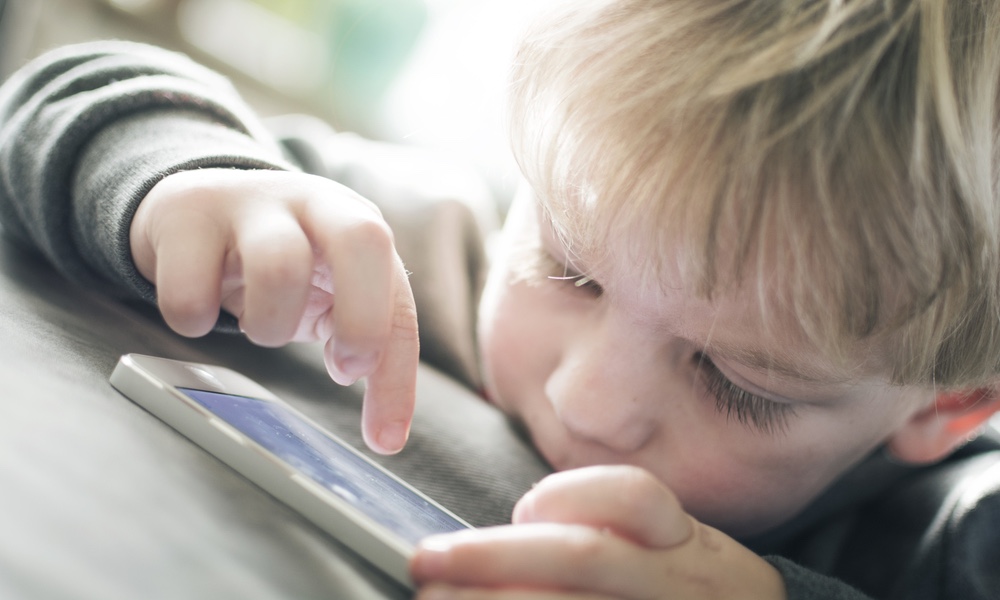Starting Next Year, All Kids Apps Will Have to Follow These Rules
 Credit: Twin Design / Shutterstock
Credit: Twin Design / ShutterstockToggle Dark Mode
With Apple’s major fall event behind us, and iOS 13 scheduled to land next week, Apple has made some changes to its App Store Review Guidelines clarifying its policies on advertising and data collection in children’s apps, softening the stance that some worried could have been a more draconian approach, and insisting that it will work with developers to help ease the transition to the new rules.
Apple has long tried to take a “family-friendly” approach to how it runs the App Store and polices content on it, but several reports earlier this year on the vast amount of tracking that iOS apps engage in revealed that one area in which Apple hasn’t done enough is in limiting the amount of advertising that’s targeted at, and the data that’s collected from, underage users.
Tracking Kids
In response to this, Apple made a commitment back in June, following WWDC, that it was going to crack down on third-party tracking in any app that’s offered in the “Kids” category on the App Store. While Apple note that, for privacy and security reasons, it doesn’t monitor the data that developers choose to collect from users, its solution to the problem of apps tracking minors was ostensibly going to be to limit or even ban that kind of tracking entirely for that particularly category of apps.
While a number of developers balked in fear that Apple would be taking a fairly draconian approach to this problem, Apple has announced that it intends to handle the issue with kid gloves (no pun intended) at least for a transitional period in order to help developers adjust to the new policies.
Despite this, however, Apple is not pulling any punches in pointing out that when it does decide to enforce the policy — which is now going to happen on March 3, 2020 — all developers who publish apps for kids will be expected to adhere to much more restrictive procedures when it comes to collecting personal information from younger users.
Apple’s New Policies for Kids Apps
The new policies themselves won’t be quite as restrictive as some thought, however, with Apple leaving the door open for very limited use of third-party analytics and advertising — both features that many developers feared would be banned completely.
For example, Apple says that third-party analytics may be allowed in “limited cases,” but under no circumstances are they to collect or transmit information about children that could be used to identify them in any possible way. This includes not only obvious data such as a child’s name or e-mail address, but even device identifiers and network information from which an identity could be extrapolated.
Apple also clarifies that developers of kids apps may still be allowed to use third-party advertising, but such ads must be contextually relevant and come from services that “have publicly documented practices and policies for Kids Category apps that include human review … for age appropriateness.”
In addition, developers of kids apps are forbidden from including any links out of the app, offering purchasing opportunities, or showing other distractions to kids except those that are “reserved for a designated area behind a parental gate.”
Kids apps can of course still explicitly collect personal information from kids, such as letting them sign up for an account to share content, but this must all be done in full compliance with regulations such as the U.S. Children’s Online Privacy Protection Act (COPPA) and the European Union’s General Data Protection Regulation (GPDR). This basically means that the apps in question must secure parental consent before collecting any data at all on minors, and Apple adds that this requirement for consent goes beyond the “parental gate” requirement for controlling in-app purchases and links.
When parents visit the Kids category on the App Store, they expect the apps they find will protect their children’s data, provide only age-appropriate content, and require a parental gate in order to link out of the app, request permissions, or present purchasing opportunities.
The new rules will take effect immediately for all new apps that are submitted to the “Kids” category in the App Store, while developers of existing apps are encouraged to update them “as soon as possible.” Although Apple doesn’t explicitly say this, it sounds like apps that aren’t in compliance by March 3, 2020 will be removed from the App Store, or in the very least from the “Kids” category on the App Store. However, Apple also notes that apps that meet Kids Category requirements will need to continue to do so in subsequent updates even if the developer chooses to remove it from that category, since customers will reasonably expect it to continue following those requirements.






